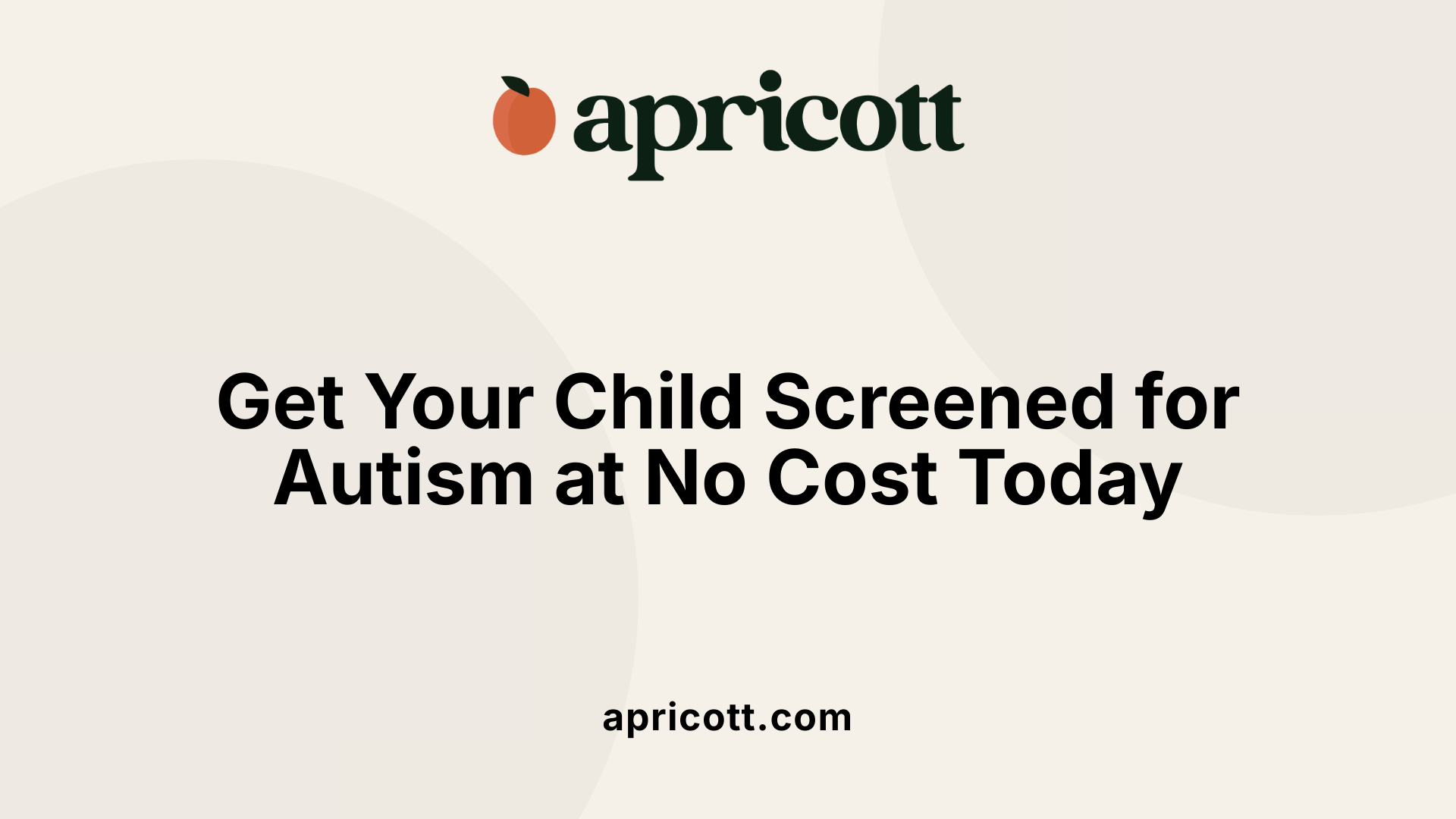September 5, 2025
Navigating Free Supports and Services for Children with Autism
Navigating the landscape of autism support services can be challenging for families seeking affordable and accessible options. Among these, Applied Behavior Analysis (ABA) therapy stands out as an evidence-based intervention proven effective in improving social, communication, and daily living skills for children with autism. This article explores available free ABA therapy services, how to access them, eligibility requirements, and resources to guide you through the process of obtaining these essential services for your child.
 Several local organizations and medical centers in San Diego and beyond offer free autism evaluations for young children. UC San Diego's Autism Center for Excellence (ACE) provides developmental assessments at no cost for children aged 12 to 36 months if there is a concern about autism or developmental delays. Families can also turn to the San Diego Regional Center, which offers assessment and intervention services for children under and over three years old who meet their criteria for autism or other developmental delays.
Several local organizations and medical centers in San Diego and beyond offer free autism evaluations for young children. UC San Diego's Autism Center for Excellence (ACE) provides developmental assessments at no cost for children aged 12 to 36 months if there is a concern about autism or developmental delays. Families can also turn to the San Diego Regional Center, which offers assessment and intervention services for children under and over three years old who meet their criteria for autism or other developmental delays.
Another valuable resource is Rady Children's Hospital, which provides free developmental screenings to children up to five years old through the First Five Developmental Services program. These evaluations help identify developmental concerns early, facilitating timely intervention.
Understanding the difference between general autism resources and free Applied Behavior Analysis (ABA) therapy is important. While resources like ACE, regional centers, and hospitals focus on diagnoses and evaluations, ABA services are targeted behavioral treatments aimed at improving social, communication, and daily skills.
Parents seeking these services should look into eligibility requirements, which typically include a formal diagnosis of autism from an approved provider, such as a licensed psychologist, neurologist, or pediatrician. For example, enrollment in ABA therapy often requires a diagnosis from an Approved Autism Evaluation Center (AAEC), ensuring the child qualifies for specialized services.
Many programs also offer or connect families with educational resources, webinars, and community support through organizations like the Autism Society of North Carolina (ASNC). ASNC, besides advocacy, runs an ABA clinic in Raleigh serving children under seven with an autism diagnosis, offering both therapy and support programs.
To navigate these options, parents should start by consulting with healthcare providers or local early intervention agencies. They can also explore online resources and community programs that list free or low-cost services.
Here is a quick overview of available evaluation resources:
| Organization | Service Offered | Age Range | Cost | Location | Additional Notes |
|---|---|---|---|---|---|
| UC San Diego ACE | Developmental Evaluation | 12-36 months | Free | San Diego | For children suspected of autism or delays |
| San Diego Regional Center | Autism assessment & services | Under 3 & Over 3 | Based on eligibility | San Diego | Meets criteria for autism or delays |
| Rady Children's Hospital | Developmental screenings | Up to 5 years | Free | San Diego | Through First Five Developmental Services |
| Autism Society of North Carolina | Support, webinars, ABA clinic | All ages | Varies, some free | Raleigh | Focused on children under 7 with autism |
Accessing free or low-cost ABA therapy involves understanding eligibility, which includes diagnosis, age, and income criteria. Families should seek guidance from local health agencies, school systems, and nonprofit organizations to determine qualification and support options.
In summary, early assessment and intervention are crucial, and many organizations provide free services to help children with autism thrive. Ensuring proper evaluation and connecting with community resources can make a significant difference in a child's developmental journey.
 When considering ABA (Applied Behavior Analysis) therapy for a child with autism, understanding the enrollment process and eligibility criteria is essential for families seeking free services.
When considering ABA (Applied Behavior Analysis) therapy for a child with autism, understanding the enrollment process and eligibility criteria is essential for families seeking free services.
The need for diagnosis by an Approved Autism Evaluation Center (AAEC) is a crucial step in qualifying for ABA therapy. To begin, parents or guardians must obtain a documented autism diagnosis from a licensed healthcare professional, such as a psychologist, neurologist, or a provider at an AAEC. This diagnosis confirms the child's eligibility and is typically required before accessing public or subsidized programs.
How much therapy should a child expect? Most ABA therapy plans involve a substantial commitment—typically between 20 to 40 hours per week. These sessions are supervised by qualified professionals, including Board-Certified Behavior Analysts (BCBAs) and Registered Behavior Technicians (RBTs). Such intensity aims to support meaningful developmental progress tailored to each child's needs.
Coordinating with various entities is vital for smooth enrollment. Parents should work closely with healthcare providers, schools, and regional centers such as the San Diego Regional Center or similar agencies offering evaluations and services. For example, schools might provide ABA services as part of special education through an Individualized Education Program (IEP). Additionally, regional centers often help with assessments and connect families to suitable interventions.
To start the process, parents should consider the following steps:
Eligibility often depends on multiple factors:
| Criteria | Details | Additional Notes |
|---|---|---|
| Age | Usually between 18 months and 18 years | Specific programs may set different age limits |
| Diagnosis | Official autism diagnosis from an AAEC | Must be recent, typically within the past 24 months |
| Residency | Residency in the state offering the program | Example: Texas residents for the Texas Autism Program |
| Income | Household income at or below 500% FPL | Some programs prioritize lower-income families |
| Insurance coverage or Medicaid | Not covered by private insurance or Medicaid | Verification needed for eligibility |
Understanding these parameters and collaborating with healthcare professionals and community resources helps ensure children receive the support they need.
In summary, accessing free ABA therapy involves securing a proper diagnosis from an approved center, understanding the typical therapy hours supervised by qualified professionals, and navigating various referral pathways through healthcare providers, schools, and regional centers. With proper coordination and support, families can significantly improve their child's development through these dedicated services.
Securing free ABA therapy for your child involves understanding available resources, navigating eligibility criteria, and advocating effectively with healthcare and educational providers. By utilizing local assessments, federal and state programs, and organizational supports, families can access high-quality behavioral interventions without financial burden. Persistent efforts, coupled with community engagement and informed advocacy, can make a significant difference in your child's developmental progress and quality of life. Remember, connecting with trusted organizations like the Autism Society, regional centers, and hospital-based programs will position you better to secure these essential services and support your child's autism journey.